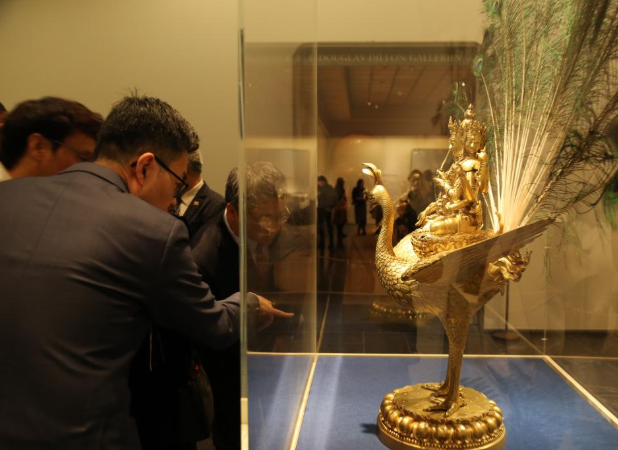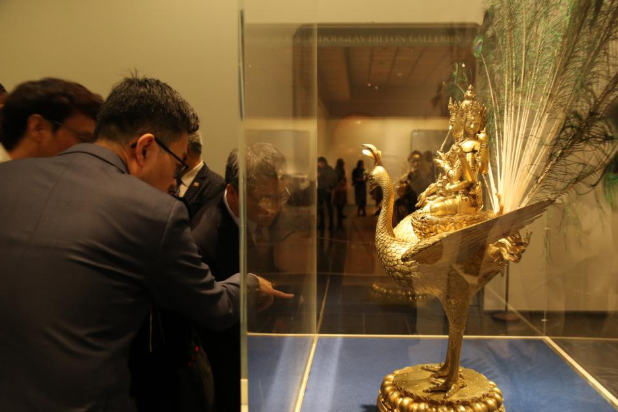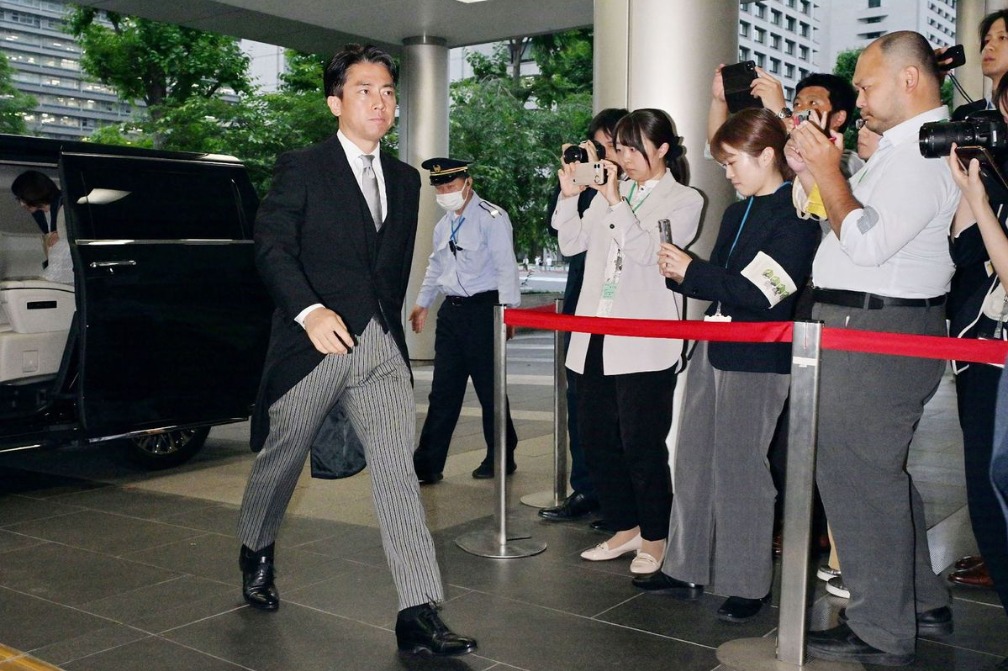Exchanges with US remain important in times of tension


Cultural and artistic exchanges remain vital and resilient channels of cooperation between the United States and China, despite their geopolitical tensions, and policy and logistical headwinds in the US, according to a scholar at the University of North Carolina at Chapel Hill.
Speaking at the National Committee on US-China Relations' annual Members' Program on Tuesday, Alison M. Friedman, executive and artistic director of Carolina Performing Arts, noted that "the arts are the good news," even amid the downturn in the relationship and domestic challenges to arts funding in the US.
She said the rolling back of grants in the US is a "new backdrop" that is affecting US involvement in international cultural exchange generally, not just with the US and China.
"The bright spots are, there's still tremendous desire on behalf of institutions to keep things going," she said, citing ongoing collaborations such as the Metropolitan Museum of Art's exhibition on Chinese bronzes developed with the Shanghai Museum.
The Wall Street Journal and The Washington Post praised the show, "Recasting the Past: The Art of Chinese Bronzes, 1100-1900," as "ambitious, refined, refreshing", and "enormously appealing". It runs through Sept 28.
Friedman, who lived and worked in China for two decades, acknowledged that the broader environment for international arts exchange has become increasingly difficult, pointing especially to the skyrocketing costs and uncertainties around artist visas.
"O and P visas, which are the artist visas, now are in the thousands of dollars per artist," she explained.
Premium visa processing — once an optional expense — has now become essential just to meet performance deadlines, costing up to $3,500 per visa without guaranteed results, according to Friedman.
"And with arts funding in the US being rolled back, institutions that typically brought artists from China and other countries as well, simply can't afford the visas to get artists over here," she said.
"So, the challenges are there, but the institutions that have always been doing the work haven't cut ties yet on both sides," she added.
Despite the hurdles, Friedman sees encouraging signs of sustained engagement and interest, especially among younger generations. "The huge drop that we saw of American students going to China after COVID is extremely concerning," she said, warning of the long-term consequences.
But she also pointed to hopeful developments: "The application rate for NYU Shanghai was higher than ever this year — even since pre-COVID numbers."
Friedman said that immersive, on-the-ground experience in China is irreplaceable for building understanding.
She shared a story of an NYU Shanghai student who "was not doing so well in his Chinese class" and instead "took three months off and bicycled from Shanghai to Xi'an, learning Chinese by chatting with fruit sellers."
These "transformative" and "contextual" experiences are what shape long-term perspectives and relationships. "It's anecdotal and it's one example, but the fact that those are still happening," she added.
She also noted a growing tendency among US institutions to take a "quieter" approach to China-related programming.
"Some of those art centers say, 'We're going to talk about it after it happens… We'll advertise to sell tickets once it gets closer. But in the preparation, we're being much more di diao (low-profile), much more under the radar about it,'" Friedman said. "The sensitivity is much more coming here than going there."
This climate of caution in the US, she suggested, mirrors the conditions under which she operated cultural exchanges in China two decades ago. Projects often received official approval but were kept low-profile until after completion. "That's exactly what we're seeing here in the US now with projects with China," she said.
In a period of tense relations, Friedman sees cultural collaboration as a quiet, persistent lifeline between the US and China.
"This is, in some ways, a time of much quieter foundation-laying," she said, "to keep ties that exist strong, so that when there is a shift, when there is presumably some moment to do more, it's not starting from scratch."
During the discussion, Friedman noted that, "Soft power could be an effect, but it should never be the intention". She highlighted the power of authentic, artist-driven cultural expression.
"When an artist has something really powerful to say and starts getting invited to festivals, suddenly audiences look up and say, 'Wait, China has really avant-garde, modern dance.' And that view of China has to get a little bit bigger to make room for that."
Earlier this month, Chinese Ambassador to the US Xie Feng encouraged more Americans to "come and discover China".
At the 2025 Opera Gala hosted by the embassy and the Washington National Opera at the Kennedy Center on May 2, Xie emphasized the significance of people-to-people friendship in building enduring relations and peace between nations, noting that "it matters even more at difficult times."
huanxinzhao@chinadailyusa.com
































